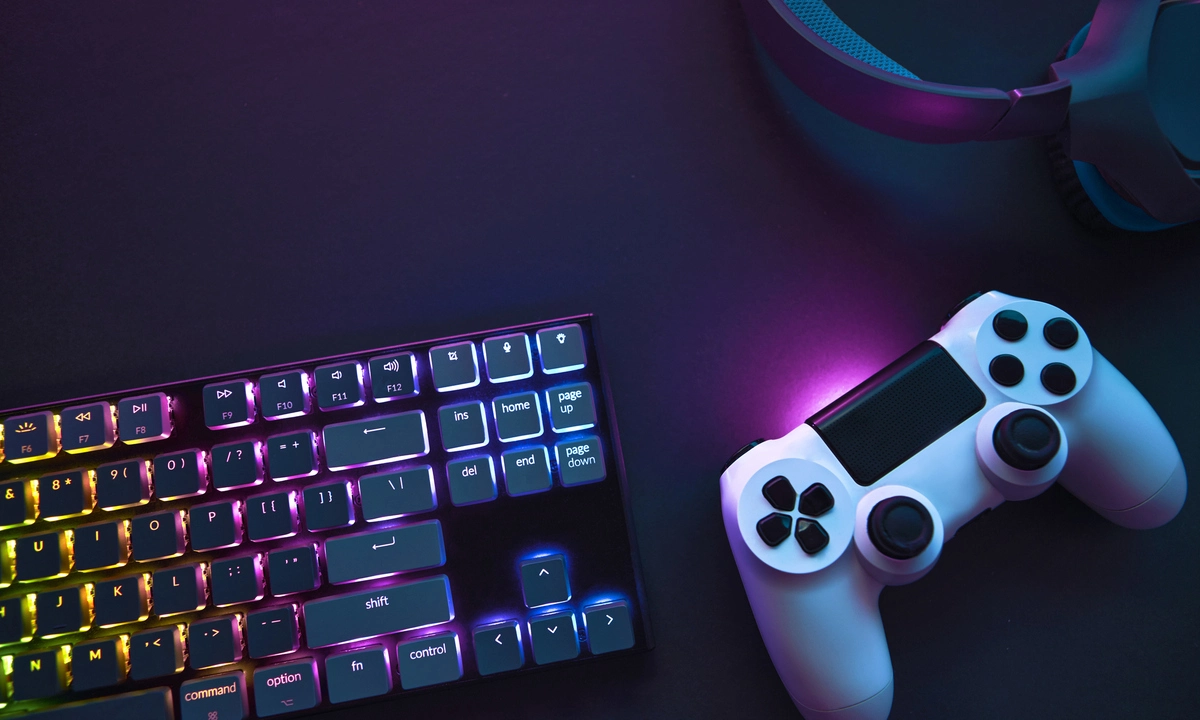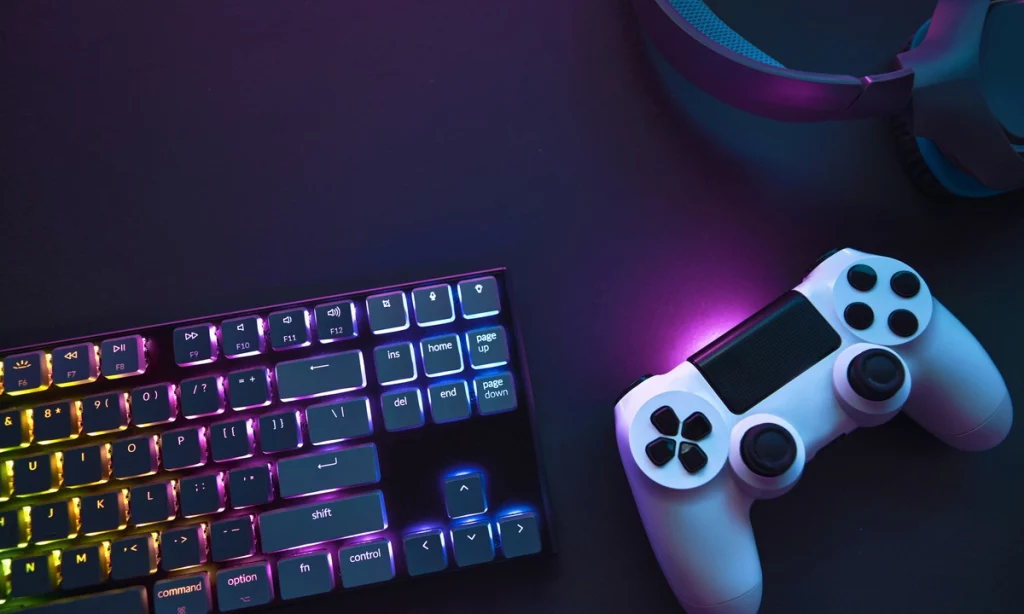Esports Injuries: The Surprising Physical Toll of Gaming

Last Updated on: 10th August 2022, 05:17 pm
Most of the time, esports games and tournaments are not a physically demanding sport or hobby. This does not imply, however, that it is unaffected by grave injuries that can endanger your health.
According to an article published in the American Academy of Orthopedic Surgeons, millions of individuals play esports and devote 5 to 10 hours daily playing games. Those periods escalate in college and professional leagues, where esports teams may train for up to 12 hours each day.
Given these prolonged playing circumstances, it’s not surprising that gamers experience injuries. But, before digging into common esport injuries, let us first understand the physical demands of esports gaming and their common causes.
How Is Esport Gaming Taxing the Body?

According to recent research by the German Sports University in Cologne, professional gamers often experience physical exhaustion during competitions that is equivalent to that of conventional athletes.
The research revealed that a gamer’s heart rate throughout a match could reach 160–180 bpm (beats per minute), equivalent to a marathon runner. In addition, gamers excrete cortisol, a stress hormone, at levels that are equivalent to those of an F1 driver.
A degree of hand-eye coordination that considerably surpasses that required by athletics is furthermore required for gamers, in addition to highly developed motor abilities. At this skill level, gamers would be clicking their mouse 400 times per minute on average, which is approximately four times faster than casual players.
Additionally, some of the most well-known competitive esport games need a degree of tactical expertise that is quite complicated, requiring players to respond fast to their opponents and develop tactics as they go. As a consequence, esports engages numerous parts of the brain at the same time.
What Are the Primary Causes of Injuries In Esports?
So, what exactly is causing these issues? Up to 40% of competitive gamers, according to the American Academy of Orthopaedic Surgeons, are not physically fit and active. That causes a weakened core, which may result in various musculoskeletal ailments and injuries. The majority of esports injuries are the consequence of:
- Overuse
- Poor posture
- Deconditioning
- Muscle weakness
The fact is—esports need improved fine motor abilities. Consequently, excessive fingers, hands, and arms usage cause orthopedic problems among gamers. Below are examples of the common esport injuries that affect gamers.
Trigger Finger
When you have a trigger finger, one of your fingers becomes stuck straight or bent. Your finger may snap into a bent or straightening position like pulling and releasing a trigger. Another name for trigger finger is stenosing tenosynovitis (stuh-NO-sing ten-o-sin-o-VIE-tis).
It happens when swelling reduces the area inside the sheath that covers the finger’s afflicted tendon. Your finger may get trapped in a bent posture if the trigger finger is severe. Moreover, a trigger finger is more likely to develop in those whose jobs or hobbies entail frequent grasping—gamers in particular.
Trigger finger symptoms range from moderate to severe and include the following:
- Stiff fingers, especially in the morning
- Audible or tactile popping or clicking when you move your finger
- Tenderness or a lump (nodule) near the end of the afflicted finger in the palm
- A finger catching or locking in a bent posture before popping straight out of it
- Your finger is stuck in a bent posture and is unable to straighten.
READ MORE: IS CRYPTO GAMING THE FUTURE OF VIDEO GAMES?
Gamer’s Thumb
The phrase “gamer’s thumb” refers to the diagnosis of tenosynovitis caused by repetitive thumb use. To be more specific, the extensor pollicis brevis and abductor pollicis longus tendons are affected by this injury. EsportsHeadlines.com mentions that thumb movements are primarily used to thumb stick movements in console gaming. As a result of the activities, the affected muscles separate the thumb from the rest of the hand. This injury, characterized by the tendon sheath’s thickness and stiffness, often necessitates surgery.
Mouse Elbow
Mouse elbow is a persistent injury that affects the extensor tendons of the forearm, which are the tendons that connect the wrist and thumb to the elbow. Your extensor muscles are concerned—those that extend the hand and bend the wrist. This injury is more prevalent for gamers because they use a mouse.
Carpal Tunnel Syndrome

Carpal tunnel syndrome is caused by irritation or impingement of the median nerve inside the carpal tunnel, located at the base of your hand. Symptoms are prominent whenever the median nerve in this area is inflamed due to pressure, inflammation, and straining.
However, PC gamers are more prone to develop carpal tunnel syndrome than mobile gamers because of the poor body mechanics that come with prolonged computer use. More precisely, since you extend your wrist to hold the mouse for a longer time with your right hand, carpal tunnel syndrome becomes more likely to affect that hand.
Prevention And Treatment Tips
Prevention is always better than cure. Notwithstanding that esport games require repeated actions that might cause overuse injuries, taking the following measures may help reduce your risk of suffering an esports injury;
- Engaging in physical fitness and exercise
- Using good postures and ergonomics
- Frequently resting and avoiding “overdoing it.”
However, if you’re already experiencing an esports-related injury, consult a sports medicine physician or orthopedic specialist to help you. Alternatives to surgery for esport injuries include:
- Putting on a brace
- Nutritional counseling
- Exercises for flexibility
- Injections or physical therapy
- Ergonomics evaluation and correction
- Taking a break or changing your activities
- Taking prescribed antibiotics and painkillers
- Exercises to increase endurance and minimize reoccurrence
READ MORE: MOST DEMANDING PC GAMES
Gamers Don’t Die; They Respawn — But Not with Injuries, Though!
Even in esports, injuries may spell the end of a professional player’s career, which is true regardless of the sport. Fortunately, as esports develops, more and more people in the sector are starting to understand these potentially career-ending conditions that gamers might encounter.
Use the advice you’ve learned from this piece if you’ve ever had bodily discomfort or issues while playing. Then, depending on the problems you may be experiencing, start by altering your position, mouse, or mouse grip. Any injury, whether induced by professional or casual gaming, is no fun.
Disclaimer: We’re not certified medical professionals in any way. Please see a qualified doctor if you need a more thorough explanation or are presently suffering from any injuries connected to gaming. On our end, we’ve made a concerted effort to help our readers in the gaming community better understand common esport injuries.


